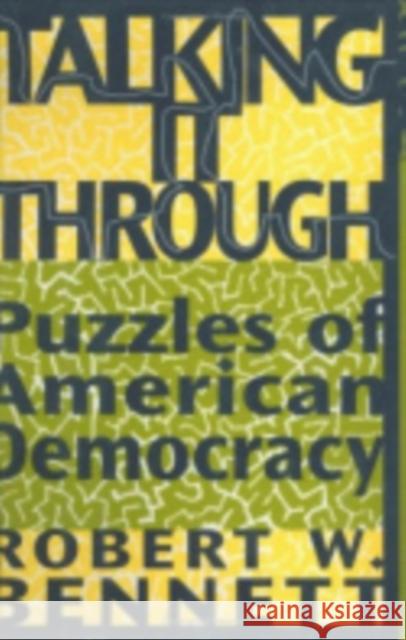Talking It Through: Puzzles of American Democracy » książka
Talking It Through: Puzzles of American Democracy
ISBN-13: 9780801440403 / Angielski / Twarda / 2002 / 240 str.
American democracy is commonly described as "majoritarian," but Robert W. Bennett argues that it is more usefully understood as "an extraordinary engine for producing conversation about public affairs" that involves essentially the entire adult citizenry. In Bennett's view, many central features of American democracy act as spurs to wide-ranging conversational interaction between the government and the governed. These included a separately elected executive, bicameralism, federalism, localism, single-member legislative districts, and heightened constitutional protection for speech and the press. Bennett asserts that the resulting democratic conversation plays an important role in holding the entire nation together and in inducing fidelity on the part of citizens to actions taken in its name.Bennett's groundbreaking conversational account also illuminates facets of American democracy which, he says, have heretofore "been blurry, if visible at all." He focuses on four puzzles of American democracy that can be "solved" through his approach. These are: lack of concern about the apportionment of the United States Senate; inattention to the anomalous political treatment of children; the perceived "counter-majoritarianism" of judicial review in enforcement of the U.S. Constitution; and the much-discussed paradox of voting: why do so many citizens vote when their individual ballots have almost no chance of changing election outcomes? Bennett also treats methodological questions of just what makes theories of complex social phenomena (like American democracy) more or less successful.











